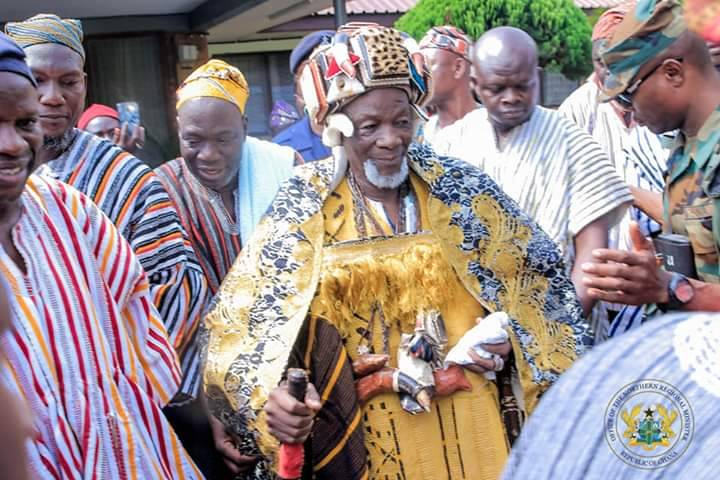The Dagbang Kingdom is located in northern Ghana, and it is one of the oldest traditional states in West Africa. The kingdom has been renowned for its rich culture and history, with a legacy extending back to the thirteenth century.
The history of Dagbang dates back to the thirteenth century when the Mampurugu empire crumbled into several smaller states. These states were ruled by a mix of petty kingdoms and chiefdoms, each with its own customs, traditions, and societal structures.
In the seventeenth century, Naa Zaa, a warrior prince from the northern kingdom of Mampurugu, conquered the chiefdoms of Dagbang and created a centralized kingdom. The descendants of Naa Zaa have ruled Dagbang ever since under the title of Yaa Naa.
The Kingdom of Dagbang underwent significant growth and expansion in the eighteenth century under the reign of Yaa Naa Gbewaa, a renowned warrior king. He conquered several neighboring states, including Yendi, Zabrama, Karaga, and Kusaug, and created a vast empire known as the Yendi Kingdom.
The kingdom continued to thrive under Yaa Naa Andani I, who established diplomatic relations with the Ashanti Kingdom, the British empire, and other powerful regional rulers. He also founded a new capital, Yendi, which became the center of power for the kingdom.
The Dagbang Kingdom has been marked by periods of political instability and conflict. In the early twentieth century, the British colonial administration attempted to limit the power of the Yaa Naa and impose indirect rule. This led to a revolt in 1930, which was violently suppressed by British authorities, resulting in the exile of the Yaa Naa.
In recent years, the Dagbang Kingdom has experienced political turmoil and violence resulting from disputes over the succession of the Yaa Naa. In 2002, a leadership crisis in the kingdom led to the death of Yaa Naa Yakubu Andani II and several others, sparking widespread violence.
Despite these challenges, the Dagbang Kingdom remains a significant cultural and historical center in Ghana and West Africa, and its people continue to preserve their traditions and heritage.




No comments yet
Be the first to share your thoughts!